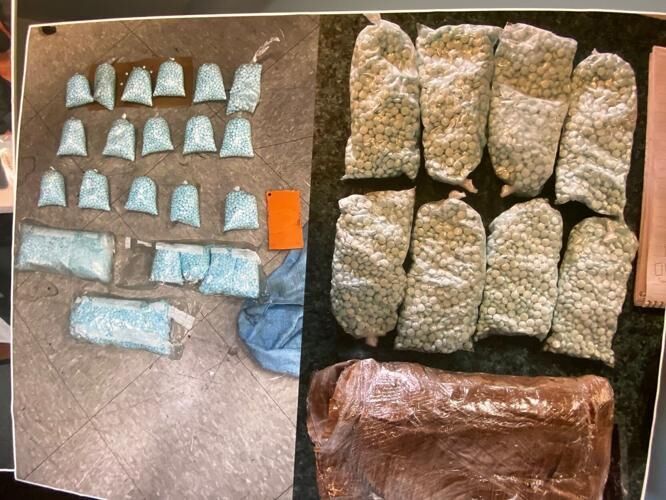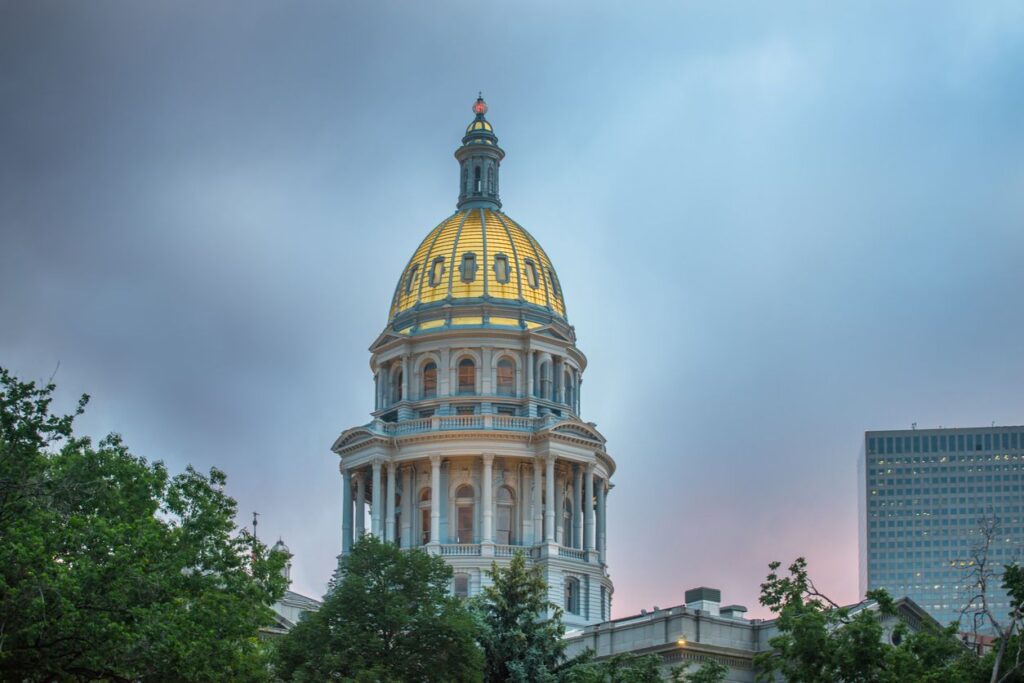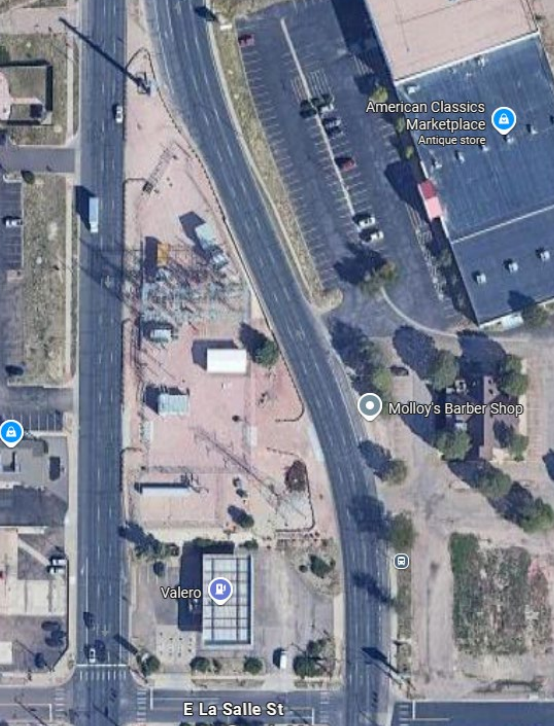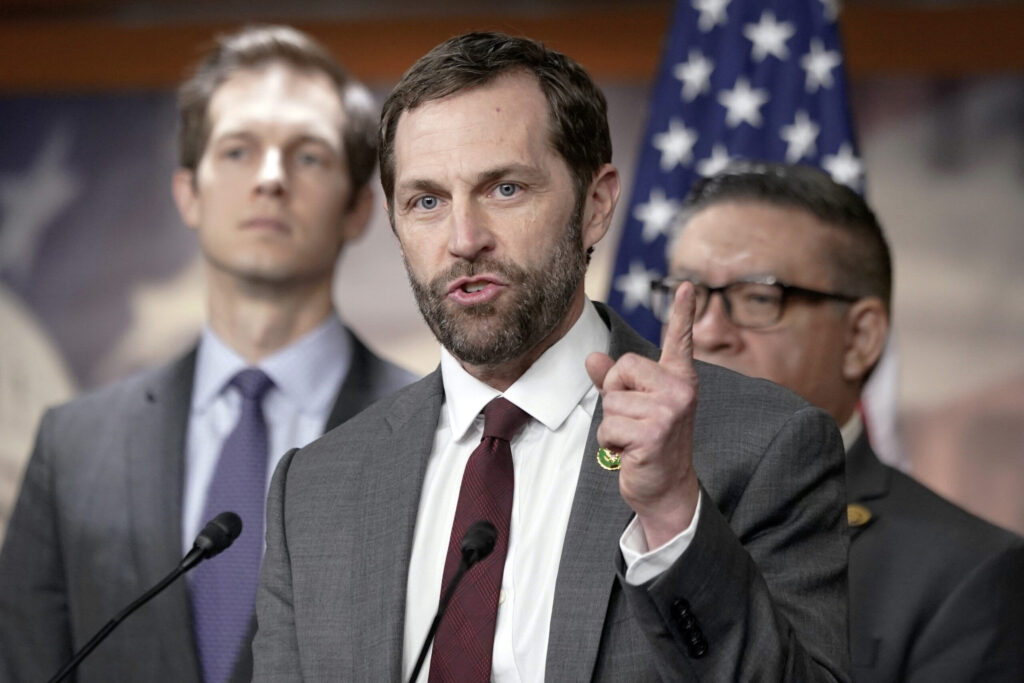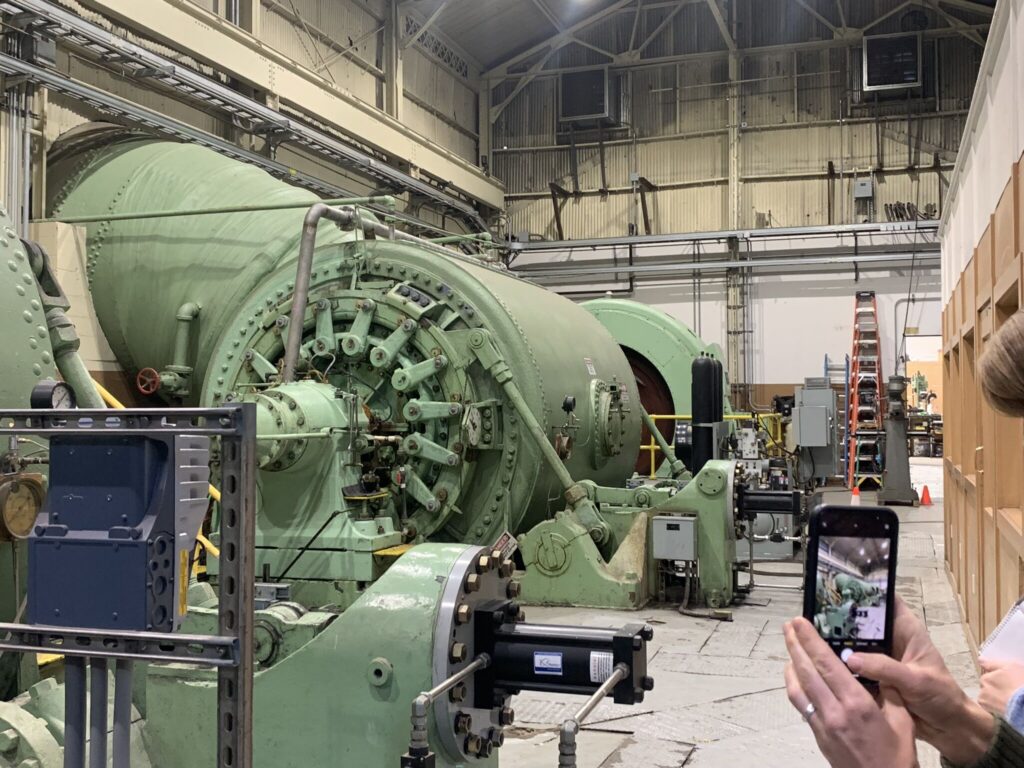Rural Reckoning | Rural critics lament disconnect between Polis administration and agriculture
Even before Gov. Jared Polis was elected, many believed his priorities did not align with the rural communities of Colorado’s Western and Eastern slopes.
Now, seven years into his tenure, frustration and resentment have grown over his board appointments, policy decisions, and a perceived preference for urban interests over agricultural communities.
The first hints of what the relationship would be like between Polis and rural Colorado and agriculture came in July 2018, months before he was elected governor.
For many years, Club 20, the voice of Western Colorado, hosted debates between statewide candidates of the major political parties, be it governor, attorney general, congressional aspirants or those who seek a seat in the General Assembly.
Polis, however, declined to participate, the first gubernatorial candidate to turn down the debate opportunity going back to at least the 1980s.
That “no” didn’t go over well with Western Slope Democrats. While many counties on the Western Slope lean Republican, areas with ski resorts trend Democratic, including Eagle, Pitkin, Summit, Routt and LaPlata counties. Indeed, the current legislature has four House Democrats from the Western Slope, including House Speaker Julie McCluskie of Dillon, and Sen. Dylan Roberts of Frisco, who chairs the Senate Agriculture and Natural Resources Committee.
In 2018, then-Garfield County Democratic Party Chair Gretchen Brogdon told KUNC, “For the committed Democrats who pay attention on the Western Slope, it makes a difference if our candidate is only willing to engage with people on the Front Range and hang out with them and spend all their time over there or if they’re willing to come out here and value the rural community.”
Some who spoke to Colorado Politics said that has been the story of Polis’ seven years in office — someone whose attention is primarily attuned to the Front Range, not so much for those who live on the Western Slope and Eastern Plains.
That’s particularly troublesome for policymakers representing agricultural areas. Agriculture is the state’s No. 2 economic driver.
State Sen. Rod Pelton, R-Cheyenne Wells, summed it up this way: “Governor Polis, in a time when we should be supporting rural Colorado, has driven a railroad spike into the rural-urban divide in Colorado.”
Polis defends record, disagrees with characterizations
Polis believes he has been a friend to agriculture.
In a statement to Colorado Politics, the governor’s office said he is “very close” to the agriculture industry, viewing it as an important economic engine, as well as a way of life.
“(He) deeply values Colorado farmers and ranchers and meets with Coloradans and businesses from across the state, including the Eastern Plains and Western Slope, and has strong relationships,” the governor’s office said. “He has been a big booster of Colorado agriculture during his time as governor, including for the first time incorporating agriculture into trade efforts and MOUs with the United Kingdom, Taiwan and Mexico.”
The governor’s office also pointed to his support for legislative changes, including adopting a tax code to exempt agricultural equipment and greenhouses from property taxes, providing a tax rate reduction for agri-voltaic systems, and offering a conservation easement tax credit, a community food access tax credit, and an agricultural stewardship tax credit.
He has used his platform to support the industry, such as through the food truck competition at the state fair and by “publishing his brisket rub recipe,” his office said.
The governor’s office also pointed to his deliberate effort to find people from rural Colorado to serve on boards and commissions. While rural residents represent 18% of Colorado’s population, his office noted that rural Coloradans compose more than 23% of all board and commission appointments since the start of his term due to extensive intentional outreach.
Polis faced criticism over appointments
The governor has received sharp criticism over his appointments to boards and commissions.
And it didn’t take long for that friction to emerge.
In 2020, he nominated a Boulder resident to represent the Eastern Plains at the state fair board. That led to a standoff in the state Senate on the last day of the session, when Republicans had the votes to reject the appointments.
In the end, three of his appointees that year were not confirmed.
For the parks and wildlife commission, he has nominated what critics described as pro-wolf and anti-hunting advocates.
Most recently, he picked a person with limited experience as a professional outfitter to represent outfitters on the wildlife board, drawing criticism from outfitters who claimed they have no idea who she is, other than a past volunteer for the Sierra Club.
There had been other sources of tension beyond his appointments.
Polis has criticized ranchers, blaming them for the cost of bringing in wolves from Oregon and claiming that, if they had supported getting wolves wolves from Idaho, Montana and Wyoming, the state would have saved money on the reintroduction program.
The wolves brought to Colorado — the first batch came from Oregon — have since slaughtered dozens of livestock in two counties, straining the relationship between private landowners and the Department of Natural Resources, which relies on the former for conservation, wildlife habitat and access to their lands for hunting and angling.
Pelton, who started his legislative career in 2019, said Polis has not been helpful to rural Colorado.
“In fact, he has been a devastating leader for our farmers and ranchers. His anti-agriculture appointments to boards and commissions have led to uncertainty outside the urban corridor,” he said. “From placing an animal rights activist that eventually was charged with animal cruelty on the Veterinary Board to his lack of rural and ag representation on Colorado Parks and Wildlife, as well as other boards having an impact on rural Colorado, he has shown his disdain for the ag community.”
Another such “attack” on agriculture, Pelton said, is the appointment of the executive director of the State Land Board, Nicole Rosmarino, “who advocates for the restoration of agricultural land to native prairie. This leads to uncertainty for those ag producers that continue to care for those lands and fund our public schools.”
That “attack” started with his appointment to the Colorado Department of Agriculture, Kate Greenberg, the first commissioner in nearly 40 years to lack production agriculture experience. Greenberg claimed to have worked on farms in several states.
In a 2022 column for the Gazette, Rachel Gabel of the Fence Post wrote that “specialty agriculture — hemp, microgreens, young and minority producers, for instance — all very much have Greenberg’s ear. The groups she has struggled with are the ones who represent the major agricultural commodities in the state, livestock, produce, and conventional farming.”
The relationship between Polis and rural Colorado, particularly in the Eastern Plains, caused then-state Sen. Jerry Sonnenberg to quip, “It’s not a strained relationship. There just isn’t much of one.”
In 2019, Polis, on a visit to the Department of Agriculture, told employees they should be promoting vegan alternatives, such as the Impossible Burger, which is made from soybeans and which aren’t grown in Colorado.
The agriculture department is responsible for promoting Colorado’s No. 1 agricultural export — beef.
Perhaps no appointment during Polis’ early years angered Eastern Colorado residents, rural lawmakers and agriculture organizations more so than his decision in June 2020 to name Ellen Kessler of Littleton, an animal rights activist, to the state’s veterinarian board.
Kessler, a friend of Polis’ husband, Marlon Reis, began her term on the board by posting on Facebook that “4-H clubs don’t teach children that animal lives matter.” She also reposted a story a month later on Facebook that alleged dairy farmers sexually abuse their cows. By that, she likely meant artificial insemination, a routine practice for at least 60 years.
After the wolf reintroduction began, Kessler accused ranchers of using their cows to “bait” wolves to receive compensation for the loss of their animals. She resigned shortly after that January 2022 post to shield Polis from criticism over her comments in an election year.
Four days later, a contractor hired to look at her furnace contacted the Colorado Humane Society to report he would not step into the house again because of the smell and horrible conditions. Kessler was charged in March 2022 with 13 counts of animal cruelty. According to an affidavit from Jefferson County, she called Reis while the sheriff and animal control officers were at her property to see if he would help.
She pleaded guilty in 2023 to one charge of misdemeanor animal cruelty, received a deferred sentence, and was assessed fines of $1,413.50. That’s on top of impound fees of $515, plus attorney’s fees and veterinarian costs to care for the 13 birds in her home — one died and another had to be euthanized — and the cost to clean up her house.
Cathy Shull, who directs Pro 15, which advocates for northeastern Colorado, called it a “pro-con” relationship.
“It’s a pro-con relationship and depends on where you sit,” she said. “(Polis) does some things that are helpful and that we appreciate, and then he will turn around and do something like his board and commission appointments for ag.”
Shull criticized the governor’s appointment of Nicole Rosmarino to the state land board, which she called “the poorest choice” in the world. (The land board commissioners appointed Rosmarino, but she was the sole finalist as determined by the governor.)
There have been appointments that Shull applauded, such as Arapahoe County Commissioner Jeff Baker to the State Board of Human Services and Jody Rogers of Yuma to the State Board of Stock Inspection Commissioners. Shull was appointed to the Community College of Colorado board.
‘Meat-Out Day’ fallout
In 2021, Polis announced a “Meat Out Day” in Colorado to promote vegan alternatives.
Pelton criticized the meatless burger and “Meat-Out Day” events, calling them an attack on the agricultural industry, “in a state whose economy was propped up in tough times by agriculture.”
In response to the gubernatorial declaration, agricultural organizations all over the state held more than 100 barbecues, cattle drives, and other events to celebrate Colorado-grown meat — and word of the events spread to Wyoming and Oklahoma.
The “Meat-In Day” is now an annual event for the Colorado Cattlemen’s Association, one that raises scholarship money.
But the Meat Out Day also prompted one cattle group to announce they would support moving the National Western Stock Show to Oklahoma, a move cheered by that state’s governor.
A mixed review
Tyler Garrett of Rocky Mountain Farmers Union said while the relationship with Polis has been rocky at times, there has been some good, most notably the passage of the bill on right to repair for agricultural equipment in 2023.
That was legislation opposed mainly by Republican lawmakers, including ranchers, but strongly supported by most ag organizations.
The governor “was a huge help in getting that passed,” Garrett said.
Garrett also welcomed another is legislation on ag and rural behavioral health from 2024, “which has been beneficial for the families we represent.”
There have been missteps, such as the wolves’ reintroduction to Colorado, he said, but when Garrett hears from members, it is a mixed review, mostly depending on what’s important to them.
Many of his members appreciate the focus by Greenberg, the agriculture commissioner, on soil health and the open and communicative approach with them, he said.
Shull also saluted Polis for his willingness to come to Eastern Colorado, even if it means facing those who disagree with him.
“Every time he has been asked to speak to us, even though it might be a hostile environment, he shows up and is willing to listen, she said. “Some of it is perception, the way he handles things hurts him more than what he does.”
‘I miss Pueblo Polis’
Before Polis, U.S. Sen. John Hickenlooper served as Colorado’s governor for eight years.
“We saw him a lot in rural Colorado,” said former state Sen. Don Coram, R-Montrose. “I can’t remember Polis ever being in my area.”
Coram said he did have a good working relationship with Polis, “but it’s just not on his radar to meet with rural folks.”
He said the wolf issue has been a barrier between the governor and rural Colorado.
“There’s been a total lack of transparency in the program, and nobody is taking ownership of it. There’s no trust,” he said, adding the buck stops with the governor.
“We’ve agreed and disagreed, but have never been disagreeable with each other,” said Coram, who, in his usual sense of humor, pointed out he shares a May 12 birthday with Polis, as does former Republican state Rep. Patrick Neville and former Republican state Sen. Perry Will.
“How do you think he feels being stuck with three Republicans? That could be the problem right there,” he quipped.
While there has been speculation about his future ambitions, Polis maintained that Colorado is his priority.
In a June interview with Colorado Politics, Polis said he has not decided what he would do next. The two-term governor stressed that he has plenty he still needs to do in Colorado before his term expires in 2027.
One prevailing sentiment among rural advocates is that the governor has neglected the non-urban areas of the state.
Club 20 Executive Director Brittany Dixon said it’s no surprise that Polis has made himself available to the media and to constituents along the Front Range.
But “he frequently forgets that 59 of Colorado’s 64 counties are outside of the Denver metro area,” Dixon said.
Dixon said that is why Club 20 was founded in 1953 — to elevate those voices and to say to the metro area “Hey, remember us? We live here, too.”
“A lack of meaningful outreach to our region raises ongoing concerns about the strength and sincerity of his relationship with rural Colorado,” Dixon said. “Our communities deserve more than token engagement; we need visible, consistent leadership that values rural voices as an integral part of Colorado’s future.”
Sara Blackhurst, the executive director of Action Colorado, which advocates for rural and southern Colorado, said the relationship between Polis and rural Colorado was better when the governor was first elected.
He was a member of her organization, attended every event, and was in Pueblo a lot.
“I miss Pueblo Polis,” she said.
She cited the closure of the Comanche Power Plant in Pueblo. That effort has given more to carbon reduction than anywhere in the state and the county now boasts the largest solar field in the country through Xcel and Evraz, she said.
But there hasn’t been a replacement to the power plant, and labor has been disregarded in the discussions. The governor isn’t accessible anymore, she said.
She also raised concerns about the rural health care situation, which she said isn’t well supported by the governor. She cited the closure of the OB-GYN unit at the Arkansas Valley Medical Center in LaJunta. Without it, people will now have to drive to Pueblo to get OB-GYN services, such as labor and delivery.
Rural lawmakers tried to insert funding for that facility into the state budget during the 2025 session, but it failed to gain enough Democratic support in the House, and by extension, the governor’s office.
“His objectives and our objectives four years ago were pretty closely aligned,” she said. “I’ve seen a departure from that in the last three years. It makes me sad.”
Colorado Politics Must-Reads:





